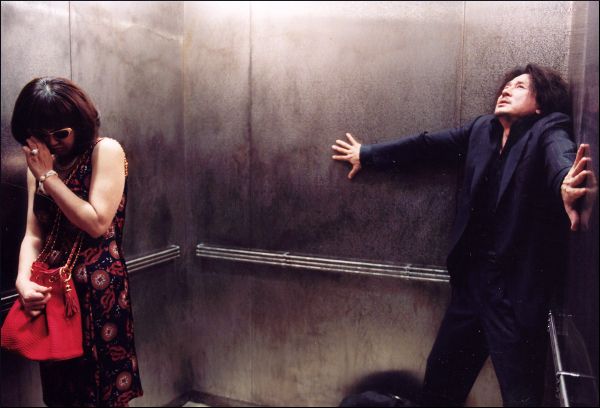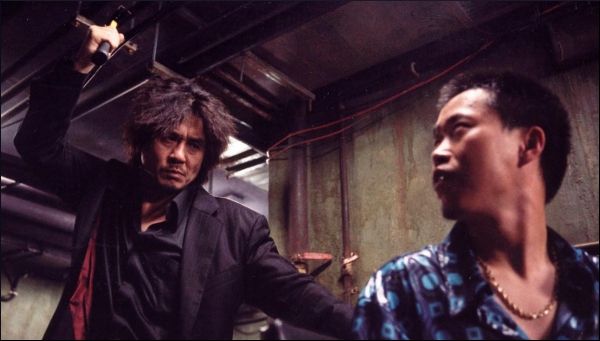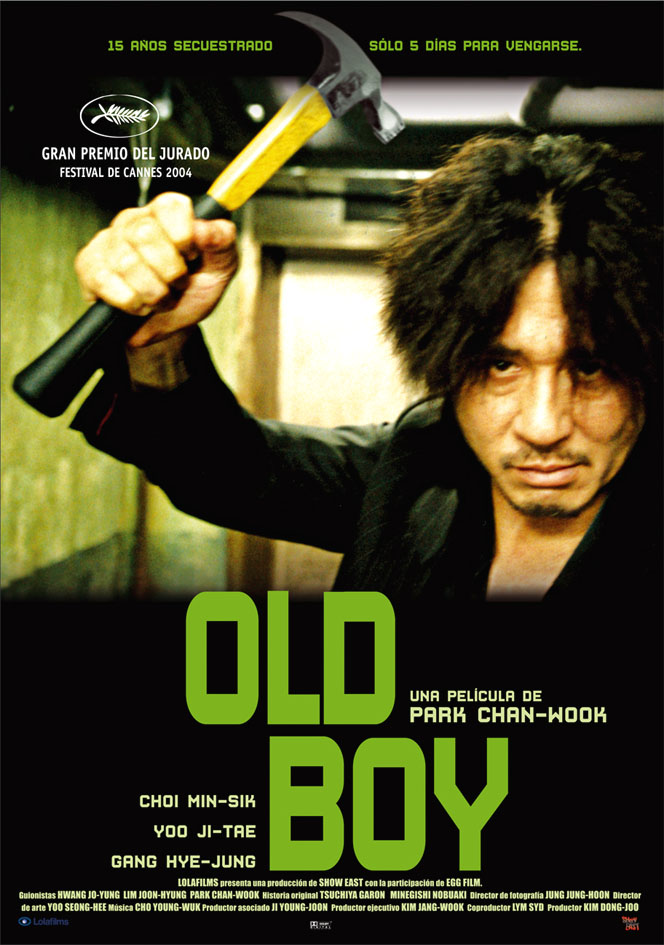Oldboy was released in 2003 and is probably one of the most dramatic films ever made. It ranked 5th in Korea’s box office and made more than 14 million dollars worldwide. For many Koreans, the film was a bit too radical, though others saw it as ground-breaking. When I watched it the first time, I felt it was different from other Korean films. I could not pinpoint exactly why, but it was not like conventional Korean thrillers and crime movies.
"Oldboy was released in 2003 and is probably one of the most dramatic films ever made."
Dae-Su Oh is an outrageous man who has no respect for anyone. Although he has a wife and daughter, he frequently gets in trouble hooking up with someone else’s wife. One night, he’s picked up from a police station by a friend of his. On the way back home, he is kidnapped by a mysterious individual and is forced to become a prisoner for an indeterminate amount of time. As the film begins, we find Dae-Su Oh locked away in a small room. He is given meals every day, always the same fried dumplings. The room is tiny and suffocating, with only one bed, a television set, and no windows. When it is time to sleep, gas is released into the room and unknown people come in to change his clothes and give him a haircut. After 15 years, he is finally released inside a large suitcase and, now back in society, he decides to enact revenge on the person who imprisoned him and dragged him through such a miserable experience for such a long time.

The theme of Oldboy is revenge. It is part of director Chan-Wook Park’s trilogy of masterpieces on the same idea, which includes Sympathy for Mr. Vengeance and Sympathy for Lady Vengeance. Dae-Su, then, seeks revenge to quench his burning anger and to compensate for his lost years, but he cannot fill the emptiness inside him. The more he hurts people, the more hollow he becomes, until his monstrous side becomes second nature. Later, he finds that the person who imprisoned him is none other than his college mate Woo-jin Lee, who was traumatized by his sister’s suicide and who believes Dae-Su was responsible for the tragedy. Woo-jin plots an elaborate revenge upon Dae-Su and manages to destroy the latter’s life, but Woo-jin does not find any peace for himself. Towards the end, he says, “이제 무슨 낙으로 살지?” (What should I live for now?).
"The film shows how cruel a human being can become in the pursuit of revenge, annihilating everyone in his or her path, including him or herself."
There are two reasons why this movie was such a big hit in Korea. The first is that Oldboy is simply very dramatic in comparison to conventional cinema. Many Korean action movies and thrillers had been made before, but none as deeply twisted as this one. The second reason is the concept. The film shows how cruel a human being can become in the pursuit of revenge, annihilating everyone in his or her path, including him or herself. By portraying the terrible results of vengeance, Chan-Wook Park tells his audience that revenge brings nothing but destruction, which coincides with the notion of “Han” at the centre of Korean culture: a passive anger that yearns for revenge but does not seek it.
Dae-Su’s language and behaviour changes after being locked away for fifteen years. Before being kidnapped, he was bubbly and talkative. His phrases tended to end with “요(yo),” which is commonly accepted in Korea by all social groups. However, after his imprisonment, his speech changes and his phrases begin to close with “–다(da)” or “–까(ka),” conveying a rather cold and official language. In one scene, a girl asks him, “말투가 원래 그래요?” (Do you always speak like that?), confirming that his language is not so common in Korean society. Nevertheless, this official-sounding speech is favoured by some people since it sounds very “manly.” Korean language has gender differences and some company workers use masculine forms to exert authority when necessary. This form of speech is also occasionally used by women when they need to defend themselves against higher authorities. Still, such cases are rare, as women usually rely on tone instead. Another thing that might be mentioned about the language is the appearance of various dialects. When Dae-Su remembers his hometown, the dialect is like the one spoken in the Kyongsang province. The difference is in the intonation rather than in the word endings. In contrast, Seoul Korean is softer and more monotone.




